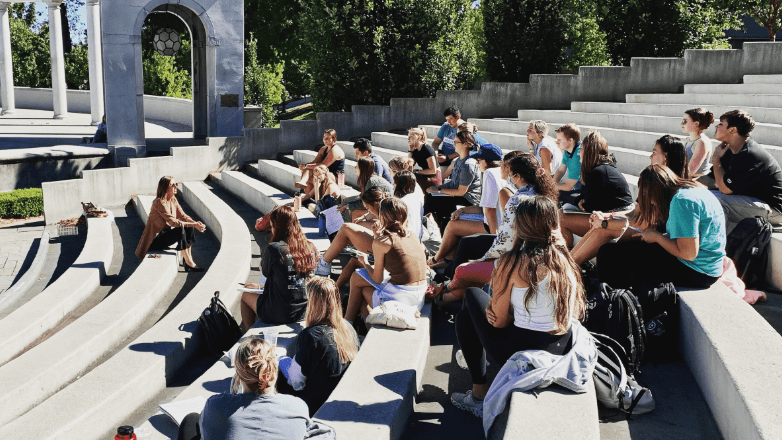FAYETTEVILLE, Ark. – Two U of A research papers qualified for presentation at the 2018 Southwest Education Council for Journalism and Mass Communication in early November in Denver, Colorado. Both papers included the work of graduate students under the guidance of Raymond McCaffrey, director of the Center for Ethics in Journalism.

“Setting the Agenda in the Age of Social Media: The Tone of Presidential Tweets and Corresponding News Stories,” is a quantitative study involving more than 600 tweets by President Donald Trump over about a two-month period. The study revealed that nearly seven out of 10 tweets that resulted in newspaper coverage were rated either “negative” or “very negative” in tone. Most of Trump’s tweets were positive or very positive, while most news stories about Trump were negative.
The research, viewed through the lens of agenda-setting and gatekeeping theories, shows that the news media still appears to be dictating the tone of news coverage. The paper was co-authored by McCaffrey and U of A journalism graduate students Mohamed M’Bareck, Paige Murphy, Kori Ortiz, Itto Outini, Paulina Sobczak, Ninette Sosa, Amy Unruh and Katherine Wayles.
The second paper is titled, “Journalists and the Red-State Voter: Perceptions of Journalism Credibility at a Statewide Level and the Trump Effect.” The paper was co-authored by McCaffrey; Bobbie J. Foster, then the assistant director of the ethics center; Michael Duffy Jr., a graduate student in the Department of Mathematical Sciences; and professor Janine Parry of the Department of Political Science. The study examined the perception of journalism ethics by residents in a red state, in this case Arkansas. A 2016 poll found that only 15 percent rated the honesty and ethical standards of journalists as high or very high, about 12 percentage points below the all-time low findings of a national Gallup poll.
“This study was able to break new ground by narrowing research regarding public perception of media ethics from a national to a statewide level, particularly in a red state. The study established that public endorsement of media ethics in this red state is appreciably lower than the level reflected in national polls and worsening, consumption of traditional media sources is diminishing, too,” said McCaffrey. “This study suggests that both of these trends are tied to political party affiliation. One cannot say these trends were caused by Trump’s candidacy, but they certainly coincided with it.”
